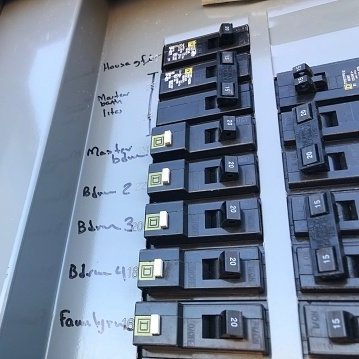Electricity Guide: What's the Role of Your Circuit Breaker?
Electricity is an inseparable part of the modern lifestyle. All appliances, gadgets, and devices need electric power for efficient functioning. However, electricity is hazardous if the home wiring is faulty or the electrical system is not correctly installed. It can cause severe property damage and even lead to casualties. A circuit breaker is a safety device that protects the property and people from excess electrical current flow.
What is a circuit breaker?
A circuit breaker is a critical safety feature connected to a residential or commercial electrical system. The design of an automatic or manual operated mechanical switching device will protect the electrical circuit from damage caused due to a short circuit or an overload.
What are the functions of a circuit breaker?
The primary function of a circuit breaker is to interrupt or discontinue the flow of electric current after detecting a fault in the electrical system. An electrical box inside or outside the house contains the main breaker that regulates the power to the entire house and rows of circuit breaker switches connected to individual circuits controlling the electric flow to different rooms. A professional should ensure that the circuit breakers installed outdoors stay protected from environmental factors.
Unlike traditional fuses that need replacement to restore the power supply after breaking the circuit only once, circuit breakers are easier to reset until they wear out with time. Most homeowners and electricians prefer circuit breakers even though they are more expensive than fuses due to the higher safety associated with them.
The importance of a circuit breaker
Short circuit or loose wiring connections cause thousands of electric fires and millions in property damage in the USA. Electrical problems are behind 10% of all residential fires. A circuit breaker remains in the "on" position to allow the free flow of electricity through the circuit. When current overflows in an electric circuit, it can damage it and lead to overheating fire, electrocution, burns, or an explosion.
A circuit breaker is essential to protect the home against such circumstances. Without these safety devices, a home faces various potential hazards. Labeling the circuit breakers makes it easier to know which part of the home it controls. It helps in spotting and fixing the problem quickly.
A circuit breaker can trip due to a ruptured power line, an excess current flowing through the circuit, or hot and neutral wires fused. Circuit breakers work as a circuit protection system and trip when the current exceeds a certain threshold.
A circuit can overload when several high energy consuming appliances are plugged in an outlet or due to a power surge from the grid. Overloading is the primary reason behind short circuits, which circuit breakers can help avoid. More than half of electric fires are preventable by installing quality circuit breakers.
Circuit breakers are available in different shapes and sizes, and an electrician can recommend the breaker perfectly suited to the home's electric equipment. When a circuit breaker trips, it is simple to flip it back to its original position. If the circuit breaker trips more frequently, it is best to call a professional electrician for an inspection.
Keep your home safe
A circuit breaker ensures the safety of your home. Consult a licensed electrician for more information on circuit breakers or to repair or replace your circuit breaker.
Trust the licensed, bonded, and insured electricians for top-quality residential electric services in Redondo Beach, CA. We specialize in providing general electrical services, electrical remodeling, circuit breaker repair, and electric panel installations. 24/7 services available. Call today.

